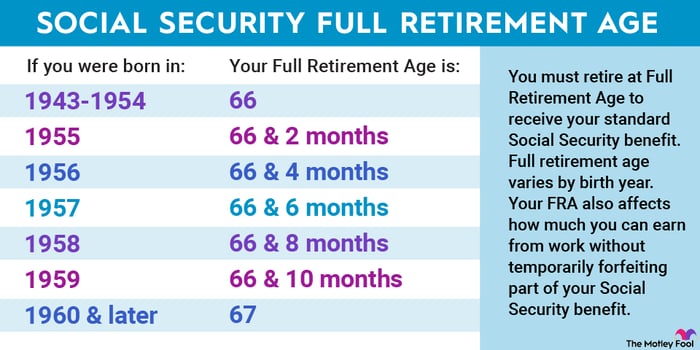Spousal Social Security Benefits: 3 Things All Retired Couples Should Know

Key Points
Claiming spousal benefits allows you to earn up to 50% of the primary claiming spouse's benefit.
Note that claiming spousal benefits early results in a larger reduction than for standard benefits.
Spousal benefits are converted to survivors benefits if your spouse passes away.
Millions of Americans rely on Social Security for most or all of their retirement income. Unfortunately, not everyone has a sufficient career earnings record to qualify for a worthwhile benefit. Whether that's due to inconsistent work, staying at home to raise children, or whatever else, this could mean getting little to nothing in Social Security benefits.
The good news is that there's another way to receive Social Security benefits without using your own earnings record: spousal benefits. Social Security spousal benefits allow you to claim Social Security based on your partner's earnings record. If you're nearing or in retirement and think this option could suit you, here are three things you should know.
Where to invest $1,000 right now? Our analyst team just revealed what they believe are the 10 best stocks to buy right now, when you join Stock Advisor. See the stocks »

Image source: Getty Images.
1. Who qualifies for Social Security spousal benefits
The earliest age at which you can claim spousal benefits is 62 (the same as standard benefits), with the only exception being those caring for a disabled child or one who's younger than 16. In the case of the latter, you can claim spousal benefits at any age.
The other two criteria are that your spouse must have already claimed benefits, and you must have been married for at least one year. If you're divorced and were married for at least 10 years, you can also claim spousal benefits as long as you're currently unmarried (even if your ex-spouse has remarried).
If you check those three boxes, you're eligible to receive up to 50% of your spouse's primary insurance amount (PIA), which is the monthly benefit they'd receive by claiming benefits at their full retirement age (FRA). For example, if their PIA is $2,400, you'd be eligible to receive up to $1,200. Below are FRAs by birth year:

Image source: The Motley Fool.
2. When you claim spousal benefits affects how much you receive
As with standard benefits, claiming spousal benefits before your FRA will result in a deduction in monthly benefits based on how far away you are from your FRA. The difference between the two is how much benefits are reduced. For the primary claiming spouse, claiming benefits before FRA results in a reduction of 5/9 of 1% monthly for the first 36 months. Every additional month after that will further reduce benefits by 5/12 of 1%.
Claiming spousal benefits early results in a larger reduction. For the first 36 months, benefits are reduced by 25/36 of 1% monthly. Each additional month after that, the reduction goes down to 5/12 of 1% monthly.
In this case, if your FRA is 67 and you claim standard benefits at 64, they'd be reduced by 25%. If you were to claim spousal benefits at 64, they'd be reduced by 30%. If you were to claim standard or spousal benefits at 62, they'd be reduced by 30% and 35%, respectively.
Another noteworthy difference between standard and spousal benefits is that monthly spousal benefits aren't increased if you delay claiming past your FRA. So, that should realistically be the latest you claim them.
3. Spousal benefits are converted if the primary claiming spouse passes away
If you're claiming spousal benefits and your partner passes away, Social Security will convert your spousal benefits to survivors benefits. Unlike spousal benefits, survivors benefits allow you to receive up to 100% of your deceased spouse's benefit, including any delayed retirement credits they earned before their passing.
For example, if your spouse's PIA was $2,400 a month, but they delayed benefits for two years and received $2,784, you'd receive the full $2,784, not the maximum $1,200 you'd be eligible for with spousal benefits.
A widow(er) is eligible to receive survivors benefits at age 60, or 50 if dealing with a disability, as long as they were married at least nine months before the passing of the primary claiming spouse. If you were married for at least 10 years and then divorced, you may also be eligible for survivors benefits.
You can't receive both spousal and survivors benefits, so this conversion of benefits works out in your favor because of the 50% cap that comes with spousal benefits. But, like standard and spousal benefits, claiming survivors benefits before your FRA will result in a deduction in monthly benefits.
The $23,760 Social Security bonus most retirees completely overlook
If you're like most Americans, you're a few years (or more) behind on your retirement savings. But a handful of little-known "Social Security secrets" could help ensure a boost in your retirement income.
One easy trick could pay you as much as $23,760 more... each year! Once you learn how to maximize your Social Security benefits, we think you could retire confidently with the peace of mind we're all after. Join Stock Advisor to learn more about these strategies.
The Motley Fool has a disclosure policy.







